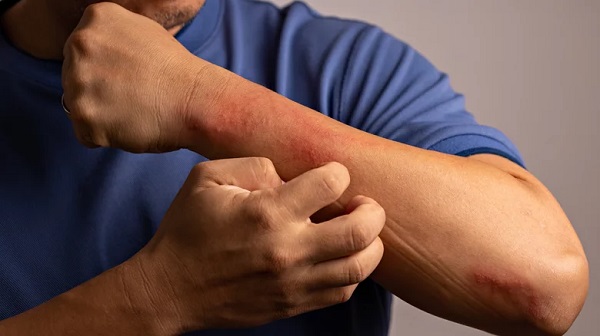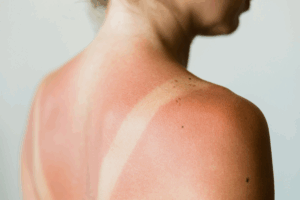Read Full Article HereA Dermatologist Shares The Top 3 Signs You May Have Eczema
Over 16 million American adults are estimated to be living with eczema, with roughly 40% of these cases considered to be moderate or severe, reports the National Eczema Association. Otherwise known as atopic dermatitis, eczema commonly emerges in childhood, but can also develop in adults, explains Dr. Mahsa Karavan, MPH, and board-certified dermatologist with U.S. Dermatology Partners Plano, in an exclusive interview with Health Digest. “Atopic dermatitis is a common chronic inflammatory disorder of the skin leading to skin barrier deficiency, dryness, and sensitivity,” Dr. Karavan states. She goes on to identify what signs people will want to be on the lookout for to help determine if they may have eczema.
Dr. Karavan explains that one of the first tell-tale signs of eczema is recurring flare-ups. “Atopic dermatitis (eczema) typically presents with skin dryness, and itching, as well as relapsing and remitting flares of rashes,” she says. “You are more likely to have eczema if you have a tendency for asthma, hay fever, or food allergies.”
Rashes and skin sensitivity can be signs of eczema
Dr. Karavan goes on to reveal that the second sign of eczema to be aware of is the emergence of rashes. “You may have eczema if you see red, weeping/crusted, or blistering rashes come and go, with more flares during the colder season and in dry conditions,” she explains. In addition, Dr. Karavan adds that eczema is most often observed on particular areas of the body. “Distribution of eczema changes with age, though it is most often on the arms, legs, hands, and face.”
Along with rashes, Dr. Karavan says the third most common sign of eczema involves skin sensitivity. “If you have sensitive skin that reacts and flares easily with the use of skin-care products such as soaps and lotions, you may have atopic dermatitis,” she tells Health Digest. “You may notice that fragrances and certain preservatives cause your eczema to flare.” The National Health Service (NHS) adds that other triggers of eczema can include shampoos, detergents, or clothing fabrics, such as wool or certain synthetic materials.
Eczema treatment methods
“Eczema or atopic dermatitis is a chronic condition and is not fully curable,” Dr. Karavan states. However, she goes on to explain that there are treatment methods available to help manage symptoms. “The first step is to eliminate any allergens that could be flaring your eczema, performing patch testing (a form of allergy testing specific for skin allergens) is needed to identify and eliminate such allergens,” she says. “Mild to moderate eczema can be managed with various topical medications and avoidance of fragrances and common allergens.”
For those experiencing more severe cases of atopic dermatitis, Dr. Karavan offers alternative treatment methods. “For more challenging to treat atopic dermatitis, there are systemic treatment options such as oral steroids, UVB light therapy, and an effective category of medications called ‘biologics’ that modulate the immune system,” she concludes.
A Dermatologist Shares The Top 3 Signs You May Have Eczema
November 18, 2022







